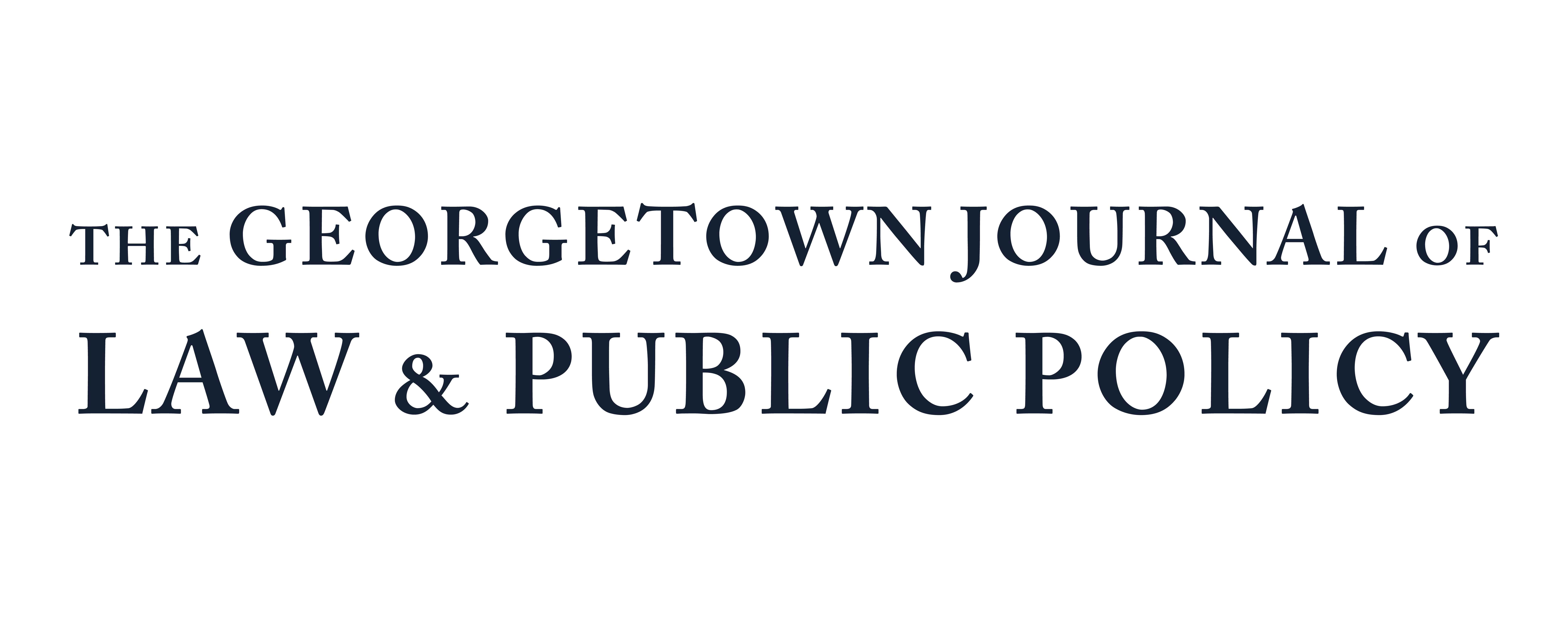The Importance Of Writing “For Tomorrow”
September 17, 2018 by psb40
By Anthony Marcum, Governance Project Research Associate, R Street Institute; Shoshana Weissmann, Policy Analyst and the Digital Media Specialist, R Street Institute
In a 2002 interview, Justice Ruth Bader Ginsburg discussed the importance of dissent.[1] “[T]he greatest dissents do become court opinions and gradually over time their views become the dominant view,” she remarked.[2] “So that’s the dissenter’s hope: that they are writing not for today but for tomorrow.”[3]
Justice Ginsburg is right. And in the history of the U.S. Supreme Court, we see it time and again. Justice John Harlan’s dissent in Plessy v. Ferguson[4] led to rejection of the “separate but equal” doctrine fifty-nine years later in Brown v. Board of Education.[5] Justice Robert Jackson’s dismissal of the Korematsu v. United States[6] decision was vindicated this year when Chief Justice John Roberts declared that “Korematsu was gravely wrong the day it was decided, has been overruled in the court of history, and—to be clear—has no place in law under the Constitution.”[7]
Dissents are not the only way for judges to make their mark. Justice Jackson’s concurrence in Youngstown Steel established the tripartite framework for evaluating presidential power.[8] Justice Antonin Scalia’s defense of textualism during an era dominated by legislative intent led Justice Elena Kagan to conclude some years later, “[W]e’re all textualists now.”[9]
But for all of these successes, it must be remembered that legal trends do not begin at the Supreme Court. In an era in which the highest court hears approximately eighty cases a year,[10] many areas of law remain cemented in the decisions of the many U.S. district courts and courts of appeals that consider hundreds of thousands of cases annually.[11]
Consequently, lower courts are equally responsible for identifying faulty legal principles or creeping deviations from the Constitution’s original meaning. Although these courts are bound by direct precedent, they are not precluded from using their constitutionally-protected pulpit to dissent, concur, remark, observe, or explain—in their view—unsupported legal norms.
After all, chances are slim that the Supreme Court will accept any particular case on certiorari, and the cases accepted only address a limited range of issues.[12] Lower-court judges writing separately more often to express displeasure with current precedent or legal trends that have not found their way to the highest court is a way to highlight needed reforms and initiate broader conversation in the legal community.
Further, there are limited alternative means by which judges may express such discontent. Federal judges are not loud or flashy public figures. Few have social media accounts or blogs.[13] Substantive speeches from judges are rare. Op-eds are even rarer.[14] Of course, legal blogs and reporters will occasionally note judges’ rumblings at oral argument or public quips, but the opportunity for judges to weave their substantive legal concerns into the text of an opinion is a uniquely independent, transparent, and unfiltered action.
There are examples of federal judges taking on this important task.
Judge Don Willett, for example, recently critiqued the current extent of qualified immunity—a doctrine that shields many government actors from legal liability—in an opinion “concurring dubitante.”[15] In it, he stated that he wrote “separately to register [his] disquiet over the kudzu-like creep of the modern immunity regime.”[16] He remarked that although qualified immunity “enjoys special favor at the Supreme Court,” he wanted to “add [his] voice to a growing, cross-ideological chorus of jurists and scholars urging recalibration of contemporary immunity jurisprudence and its real world implementation.”[17]
Without the benefit of certiorari, lower courts encounter nearly every aspect of litigation and federal law. As a result, lower court judges have unique insight into judicial applications that violate constitutional principles and legal doctrines that deviate from the Constitution’s original meaning. The most powerful action these judges can take is to speak up—to write for tomorrow. In doing so, they serve as a legitimate voice for the continued independence and integrity of the federal judiciary.
[1] Ruth Bader Ginsburg and Malvina Harlan, NPR (May 2, 2002), https://www.npr.org/templates/story/story.php?storyId=1142685.
[2] Id.
[3] Id.
[4] 163 U.S. 537 (1896) (Harlan, J., dissenting).
[5] 347 U.S. 483 (1954).
[6] 323 U.S. 214 (1944) (Jackson, J., dissenting).
[7] Trump v. Hawaii, 138 S. Ct. 2392, 2423 (2018) (internal quotation marks omitted).
[8] 343 U.S. 579 (1952) (Jackson, J., concurring).
[9] Harvard Law School, The Scalia Lecture | A Dialogue with Justice Elena Kagan on the Reading of Statutes, YouTube (Nov. 25, 2015), https://www.youtube.com/watch?v=dpEtszFT0Tg.
[10] The Justices’ Caseload, U.S. Supreme Court, https://www.supremecourt.gov/about/justicecaseload.aspx (last visited Sept. 13, 2018).
[11] Federal Judicial Caseload Statistics 2018, U.S. Courts, http://www.uscourts.gov/statistics-reports/federal-judicial-caseload-statistics-2018 (last visited Sept. 13, 2018).
[12] See, e.g., Adam Feldman, Cert Analytics, Empirical SCOTUS (Jan. 10, 2017), https://empiricalscotus.com/2017/01/10/cert-analytics/.
[13] Fifth Circuit Judge Don Willett may be the only U.S. Circuit Judge with a twitter account—and he no longer tweets. Judge Don Willett (@JusticeWillett), Twitter, https://twitter.com/justicewillett?lang=en (last visited Sept. 13, 2018).
[14] Notwithstanding that the Code of Conduct for United States Judges permits federal judges to “speak, write, lecture, teach, and participate in other activities concerning the law, the legal system, and the administration of justice,” Code of Conduct for U.S. Judges Canon 4 (U.S. Courts 2014), and commentary to the canons observes that federal judges are “in a unique position to contribute to the law, the legal system, and the administration of justice, including revising substantive and procedural law and improving criminal and juvenile justice.” Id. at Canon 4 cmt.
[15] Zadeh v. Robinson, No. 17-50518, 2018 WL 4178304 (5th Cir. Aug. 31, 2018) (Willett, J., concurring).
[16] Id. at *10.
[17] Id. at *11 (internal quotation marks omitted).

